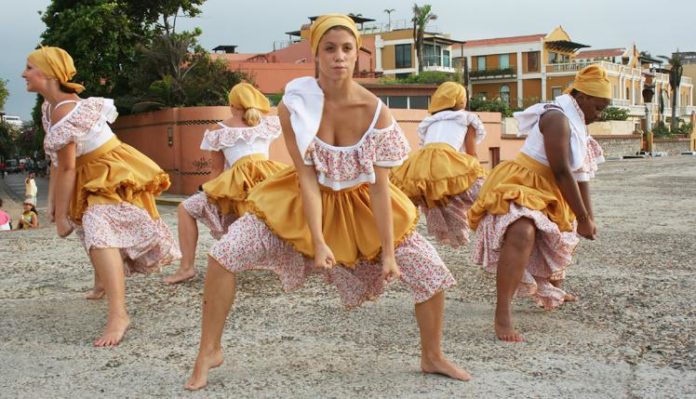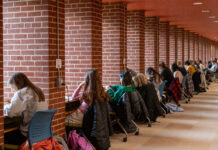Members of the SRU Afro-Colombian Dance Ensemble (ACDE) traveled to Colombia over the summer to research and participate in an international dance festival.
SRU dancers Katie Boyle, Erica Burke, Melanie Dunbar, Rachel Silverstrim, Kaila Belinda, and Melissa Teodoro, associate professor of dance, traveled to the cities of Cartagena, Mompox and Talaigua, Colombia to explore the cultural aspect of their field.
“This international trip offered [the students] a true cultural exchange and a transformational experience that deeply marked them for life,” Teodoro said.
Teodoro said the five dancers had to submit an essay explaining their interest in travelling to Colombia and they also had to describe how they would benefit from the research experience.
The five dance majors and Teodoro worked with a local Colombian choreographer, Luis Fernando Trouchon, and his students from the Universidad De Cartagena in re-constructing a dance called the Seresese. The dance was then performed at the Festival Del Anfibio in the village of Talaigua.
“We knew going down that there would be extreme differences from dancing here to dancing there,” Boyle, a senior dance and early childhood education major, said.
Rehearsals were held outside on concrete floors rather than air-conditioned studios, and real props such as fire added risk to the routine, Boyle said.
Silverstrim said the difference between dance in America and dance in Colombia is the time commitment.
“Most Americans [dance] as a hobby, we are never taught by our parents,” Rachel Silverstrim, a senior dance major, said. “Whereas [in Colombia], dance is their culture. It is everywhere and it is a part of them.”
Dancing in another country allowed the students to experience a less competitive side of the art, they said. The native dancers welcomed everyone to come dance with them regardless of experience level, they said.
Instead of having specific start and end times for rehearsals, everyone just “danced until they couldn’t anymore,” Boyle said, and dance served as “a universal language for her and her peers.”
“One of the challenges of course down there was the language barrier, however, while we were dancing with the students it didn’t matter,” Boyle said. “The dance spoke for us and we were able to bond so strongly through that.”
Along with the Afro-Colombian Dance Project, the Dance Department offers and supports many international programs for their majors such as dance in India, spring break in Europe, and the Asia Pacific Dance Festival.








